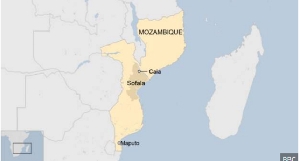Business News of Wednesday, 11 September 2019
Source: laudbusiness.com
BoG to hold staff accountable for banking crisis
Every worker within the Banking Supervision department of the Bank of Ghana (Bog) has a performance contract attached to his or her appointment and so the central bank will hold them accountable for their stewardship if problems arise in the financial sector again, Head of Banking Supervision, Osei Gyasi, has said
Speaking on Tuesday at the Joy Business Financial Services Forum, Mr Gyasi said : “The central bank is well positioned to ensure due diligence is conducted before new licenses are issued.
“We have to make sure that the necessary approvals are given and whoever is giving the approval will also ask the relevant questions because the person knows the risks associated with issuing licenses to institutions that do not qualify.
“In a way, everybody in banking supervision has a performance contract if you are a relationship manager and you are in charge of some savings and loans, finance houses and banks, you have a performance contract and at the end of the day you will have to account for it.
“As head of department I have performance contract.”
Seven local banks have collapsed after the cleanup exercise undertaken by the Bank of Ghana (BoG).
The banks are uniBank Ghana Ltd, the UT Bank, the Capital Bank, the Royal Bank, the Construction Bank, the Beige Bank and the Heritage Bank.
Similarly, the BoG has revoked the licenses of twenty-three (23) Microfinance Institutions.
Some of the affected institutions include GN Savings and Loans Company which belongs to businessman and politician Dr Papa Kwesi Nduom, Unicredit Savings and Loans, Adom Savings and Loans, Midland Savings and Loans, Ideal Finance and Dream Finance Company.
The others are Accent Financial Services Limited, All Time Finance Limited, Alpha Capital Savings and Loans, ASN Financial Services Limited, CDH Savings and Loans Limited, Commerz Savings and Loans, Crest Finance House Limited, Dream Finance Company Limited, Express Savings and Loans Company, First African Savings and Loans Company, First Allied Savings, First Ghana Savings and Loans Company, First Trust Savings and Loans, Global Access Savings and Loans Company Limited, IFS Financial Services, Legacy Capital Savings and Loans Limited, Sterling Financial Services, Women’s World Banking Savings and Company Limited.
This move, according to the central bank, is to restore confidence in the banking and specialised deposit-taking sectors.
The BoG said in a statement that: “These actions were taken pursuant to Section 123 (1) of the Banks and Specialised Deposit-Taking Institutions Act, 2016 (Act 930), which requires the Bank of Ghana to revoke the licence of a Bank or Specialised Deposit-Taking Institution (SDI) where the Bank of Ghana determines that the institution is insolvent. The Bank of Ghana appointed Mr. Eric Nipah as a Receiver for the specified institutions in line with section 123 (2) of Act 930.
“The revocation of the licences of these institutions has become necessary because they are insolvent even after a reasonable period within which the Bank of Ghana has engaged with them in the hope that they would be recapitalized by their shareholders to return them to solvency. It is the Bank of Ghana’s assessment that these institutions have no reasonable prospects of recovery, and that their continued existence poses severe risks to the stability of the financial system and to the interests of their depositors.
“In line with the Government’s commitment to protect depositors’ funds, the Government has made funds available to enable the Receiver pay depositors after their claims are validated. The Receiver will in due course make an announcement with regards to when and where payments will be made. The Receiver will also indicate documents required from depositors to facilitate the validation of claims and orderly payment of validated deposits. Other creditors of the failed institutions will be settled by the Receiver upon validation of their claims and to the extent that the Receiver is able to realise value from the remaining assets of these institutions.”













